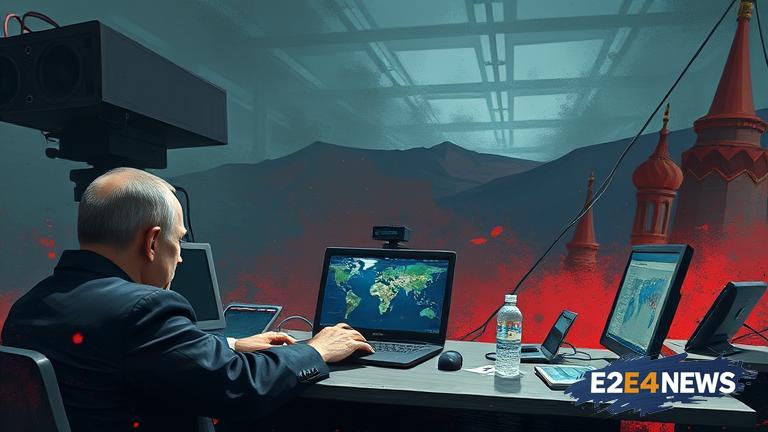In a move that has sent shockwaves throughout the global digital community, Russian President Vladimir Putin has set his sights on controlling the country’s internet. This latest power play has sparked widespread concern over the potential for censorship, surveillance, and the erosion of online freedoms. The Russian government has long been accused of attempting to exert control over the internet, but this latest effort is seen as a significant escalation. Putin’s plan involves the creation of a centralized system that would allow the government to monitor and regulate online activity. This would give the authorities the power to block access to certain websites, restrict online content, and even shut down the internet entirely in times of crisis. The move has been met with fierce resistance from Russian internet users, who fear that it will lead to a crackdown on free speech and online dissent. Many have taken to social media to express their opposition to the plan, using hashtags such as #RussiaInternetFreedom and #StopPutin. The Russian government has defended the plan, claiming that it is necessary to protect the country from cyber threats and maintain national security. However, critics argue that this is simply a pretext for censorship and surveillance. The plan has also been condemned by international human rights organizations, who warn that it will have a chilling effect on online freedom of expression. The Russian internet has long been a thorn in the side of the government, with many online activists and opposition figures using the internet to organize and mobilize. The government has responded with a series of laws and regulations aimed at restricting online activity, including the notorious ‘Yarovaya Law’ which requires telecoms companies to store users’ personal data for up to six months. The latest plan is seen as a significant escalation of these efforts, and has sparked fears that Russia is heading down a path of increased authoritarianism. The implications of the plan are far-reaching, and could have significant consequences for online businesses and individuals alike. Many companies are already taking steps to protect themselves, including using virtual private networks (VPNs) and encrypted messaging apps. However, these measures may not be enough to protect against the government’s surveillance efforts. The plan has also sparked concerns over the potential for Russia to become a ‘digital island’, cut off from the rest of the world. This could have significant economic and social consequences, as Russia becomes increasingly isolated from the global digital community. As the situation continues to unfold, it remains to be seen how the Russian government will implement its plan, and what the consequences will be for online freedom and democracy. One thing is certain, however: the Russian internet is under siege, and the future of online freedom in the country hangs in the balance. The international community is watching with bated breath, as the situation continues to unfold. The Russian government’s actions have sparked a global outcry, with many calling for increased sanctions and diplomatic pressure to be brought to bear. The European Union has already condemned the plan, and the United States has expressed its ‘deep concern’ over the move. As the situation continues to escalate, it remains to be seen what the ultimate outcome will be. Will the Russian government succeed in its efforts to control the internet, or will the online community find a way to resist and overcome? Only time will tell, but one thing is certain: the future of online freedom in Russia is at stake.





